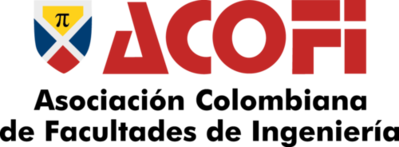Profiling first-year engineering students: a strategy for academic support
DOI:
https://doi.org/10.26507/paper.2564Palabras clave:
profiling, STEM, attitudes, first-year students, skills, strategy for academic supportResumen
In higher education, particularly in engineering schools, the increase in early dropout rates has been an indicator for questioning possible causes or aspects that affect student retention and success. In this context, establishing strategies for academic support and accompanying students is a priority. Therefore, student profiling is an approach to managing a diverse population for institutions. Research studies have shown that individual, social and attitudinal factors are related to academic performance. Also, the variable gender has been associated with performance and attitudes towards STEM topics. Overall results exposed that academic performance in the first-year transition is a marker of success for engineering students.
Considering this background, the School of Engineering at the Pontificia Universidad Javeriana (PUJ) has developed strategies for the different transitions at the university, especially in the first-year transition. One of these strategies aims to characterize students with a series of tests conducted before the first academic year. The profiling results advise the faculty of possible academic alerts and give guidance for students to reinforce mathematical skills and attitudes. Students are enrolled in an extra-curricular workshop aligned with the first-year math course for building up these skills and encouraging positive attitudes in learning mathematics. Furthermore, the university offers multiple services and facilities for accompanying students as academic counseling, mathematical tutoring, and learning support. Student profiling is crucial to outline targeted actions in the learning process, where professors need to assess students’ needs. This strategy permeates the first level of intervention and belongs to a cross-cutting accompaniment strategy for the students’ transitions.
Exploratory analyses indicate that self-confidence and motivation in mathematics are factors that impact academic performance. The connection skill and knowledge of algebra are predictors for academic performance in first-year math courses. There are significant differences between gender in the conducted tests, particularly in self-confidence, self-perceptions of mathematical knowledge, problem-solving, communicating, and representing competencies.
This study presents the research background as an introduction justifying this work. Afterward, the accompaniment strategy designed and implemented at the PUJ is described. Exploratory results and prior considerations for future work are discussed. Finally, some conclusions about academic support and success in engineering students are presented.
Descargas
Citas
Casanova, J. R., Vasconcelos, R., Bernardo, A. B. & Almeida, L. S. (2021). University Dropout in Engineering: Motives and Student Trajectories. Psicothema, Vol. 33, No. 4, pp. 595-601. https://doi.org/10.7334/psicothema2020.363
Daker, R. J., Gattas, S. U., Sokolowski, H. M., Green, A. E. & Lyons, I. M. (2021). First-year students’ math anxiety predicts STEM avoidance and underperformance throughout university, independently of math ability. npj Science of Learning, Vol. 6, No. 17, pp. 1-13. https://doi.org/10.1038/s41539-021-00095-7
Ministry of Education. (2009). The Singapore Model Method for Learning Mathematics. Curriculum Planning & Development Division, Singapore: EPB Pan Pacific.
Morelli, M., Chirumbolo, A., Baiocco, R., & Cattelino, E. (2021). Academic failure: Individual, organizational, and social factors. Psicología Educativa, Vol. 27, No. 2, pp. 167-175. https://doi.org/10.5093/psed2021a8
Moses, L., Hall, C., Wuensch, K., De Urquidi, K., Kauffmann, P., Swart, W., Duncan, S. & Dixon, G. (2011). Are Math Readiness and Personality Predictive of First-Year Retention in Engineering?. The Journal of Psychology, Vol. 145, No. 3, pp. 229-245. https://doi.org/10.1080/00223980.2011.557749
NCTM (2000). Principles and Standards for School Mathematics. Reston, VA: NCTM.
OECD (2010). Mathematics Teaching and Learning Strategies in PISA. PISA, OECD Publishing, Paris. https://doi.org/10.1787/9789264039520-en
van Rooij, E. C. M., Jansen, E. P. W. A., & van de Grift, W. J. C. M. (201). First-year university students’ academic success: the importance of academic adjustment. European Journal of Psychology of Education, Vol. 33, No. 4, pp. 749-767. https://doi.org/10.1007/s10212-017-0347-8
Rodríguez Gómez, R. (2017). Matemáticas en países asiáticos: El caso de Singapur. Retrieved from: https://www.educacionfutura.org/matematicas-en-paises-asiaticos-el-caso-de-singapur/
Schoenfeld, A.H. (1992). Learning and Thinking Mathematically: Problem Solving, metacognition, and sense-making in Mathematics. In D. Grouws (Ed.), Handbook of Research on Mathematics Teaching and Learning. New York: MacMillan.
Descargas
Publicado
Cómo citar
Evento
Sección
Licencia
Derechos de autor 2022 Asociación Colombiana de Facultades de Ingeniería - ACOFI

Esta obra está bajo una licencia internacional Creative Commons Atribución-NoComercial-SinDerivadas 4.0.
| Estadísticas de artículo | |
|---|---|
| Vistas de resúmenes | |
| Vistas de PDF | |
| Descargas de PDF | |
| Vistas de HTML | |
| Otras vistas | |








